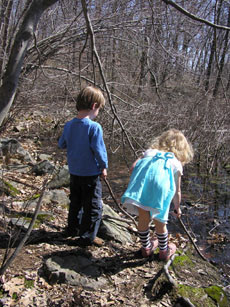CLC has a rich history of advocating for a wide variety of conservation and environmental issues. At its founding over 50 years ago, CLC initially focused its efforts on persuading the town to purchase and preserve available parcels of land as open space. The organization has continued advocating for the preservation of open space, the most recent examples being acquisition of the Cotton Farm property, Busa Farm for conservation as a working farm, and this past year, the acquisition of the 39 Highland Avenue property adjoining the Upper Vine Brook Conservation property.
A somewhat different type of advocacy for open space preservation was the campaign that persuaded the state to transfer the former Middlesex Hospital Lot 1 parcel to management by the Department of Conservation and Recreation as part of the Beaver Brook North Reservation rather than selling it off for development. Yet another sort of advocacy was required when a large parcel on Grove Street was sold for development. CLC joined the effort to successfully persuade the Planning Board to approve the Public Benefit permit option, which allowed for more, but smaller, housing units in exchange for preserving a portion of the woodland at the rear of the property as open space.
CLC has also advocated for actions in a variety of areas that support and maintain our environment and natural resources. Members of CLC actively supported the Native Plant Project in which a comprehensive list of native plants and sources for purchasing them was created. CLC worked with other local environmental groups in passing a warrant article that established a “stretch code” for new real estate development to promote clean energy alternatives for heating, water usage, and eco-friendly planting. CLC is also an associate member of other local networks and organizations focused on environmental and climate-related concerns such as the Lexington Global Warming Action Coalition (LexGWAC) and the Lexington Green Network.

